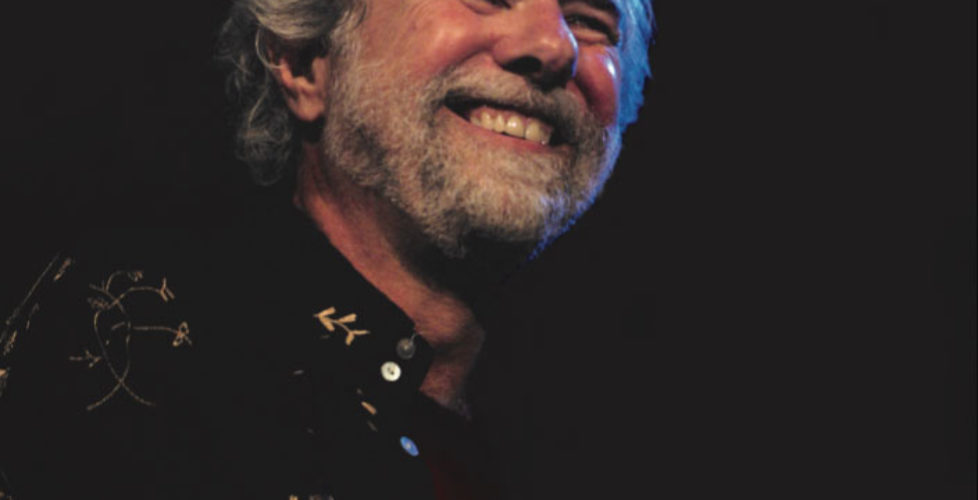From the Allman Brothers Band to the Rolling Stones to farming trees, pianist Chuck Leavell never lost sight of his roots

Through an amazing and multi-faceted career, Chuck Leavell never lost sight of his Southern roots.
The Alabama native learned piano and keyboards (mainly self-taught) as a youngster. started a band by the time he was 13, played on several records at the Muscle Shoals studios, and moved to Macon in 1970, attracted by the music scene sprouting around Capricorn Records. In the years since, Leavell has played with the Rolling Stones, the Allman Brothers Band, Eric Clapton, John Mayer, George Harrison and many other rock headliners.
When Leavell was barely 20, he was asked to join the Allman Brothers Band following the death of guitarist Duane Allman. After the group disbanded for a time, he founded the rock-jazz-blues fusion outfit Sea Level, which recorded for Capricorn. He toured with the Rolling Stones in 1982 and eventually became their musical director. He finished his latest tour with them just this past fall.
Leavell is also a passionate tree farmer and environmentalist who has written and spoken extensively on both subjects. He lives on a woody spread just outside Macon where he farms trees. Recently, he answered some questions via email from Atlanta Senior Life. Answers have been edited for length.
Q. What got you interested in music, particularly the keyboard?
A. My mom played piano, not professionally nor was she a teacher, but she played for family enjoyment. I loved hearing her play, I was fascinated watching her hands go up and down the keys and loved the melodies and harmonies I heard. I eventually started figuring some things out and even took lessons for a short time, but I mainly I just experimented on my own and started learning the ropes on the instrument.
Q. What was it like at Capricorn in the early 1970s and what led to your joining the Allmans?
A. I had worked previously with some artists on the Capricorn label both in the studio and on tour. The sessions were going quite well and sometimes in the evenings the rest of the ABB would come in and jam. After a couple of weeks of those jam sessions, I got a call from Phil Walden, the band’s manager, to come see him. I wondered if I had done something wrong.
When I went in for the meeting, the rest of the ABB was there. A few pleasantries were exchanged and then the shoe dropped. “The guys feel like things are sounding really good playing with you and would like to know if you would like to join as a member?” It was quite a surprise, certainly a welcome one.
Q. How different is being on tour today compared with decades ago?
A. The technology has played a bigger role on every tour. Everything from the audio and production have become more and more sophisticated and played a bigger and bigger role every time we embark on a new tour. Musically, the band [the Rolling Stones] has become much more consistent over the years. The more we do it, the better we get as a unit. So much is just instinctive now when we play together.

Q. What’s your take on today’s popular music?
A. There are so many bands and artists on the charts and being streamed and downloaded these days that I have no idea who they are. It’s not something I tend to focus on very much. Some of the ones I can relate to, like my friends in Tedeschi Trucks, Government Mule, Blackberry Smoke, Randall Bramlett and the like, I do keep up with.
Q. How has COVID affected the music business?
A. It has changed quite a lot. All of us involved in any way on this [Stones] tour have been double- or triple-vaxxed. We have a staff of doctors, nurses, a COVID compliance person. We are all — band, staff and crew — tested 2-3 times a week and kept in a very tight bubble. We are discouraged from going out much and are always masked when we do.
Q. What does your tree farm and environmental work spring from?
A. I joke that it’s “all my wife’s fault.” Her family has been involved in farming, cattle, the outdoors, and forestry for generations. We knew the importance of keeping the land in the family and doing right by the land.
After several months of study and research, we decided to focus primarily on long-term, sustainable forestry. There was a personal connection for me. Where does that thing that has given me so much joy and such a great career come from? Wood of course, as does most musical instruments. So, I began a journey of learning about forestry.
Q. Do you have a favorite variety of tree that speaks to you?
A, Well the dominant tree from Virginia down the eastern seaboard over to East Texas was the longleaf pine. Most of all these forests were converted over time primarily to loblolly pine. We have joined efforts to reintroduce longleaf to that landscape.
Q. What do you do when you’re not working in the tree or musical spaces
A. Well, I maintain a pretty healthy physical regime and I enjoy riding our horses, working with our hunting dogs and spending time with our two daughters and their families whenever possible. There is also the occasional speech or presentation I give, and probably another book or two on the horizon.
